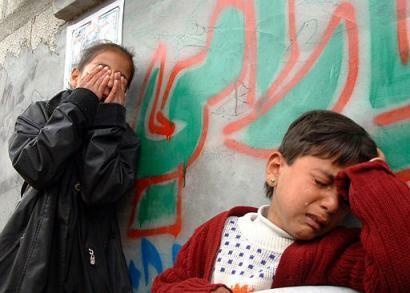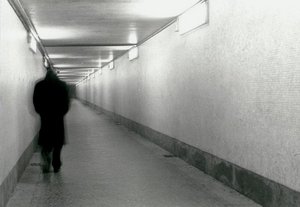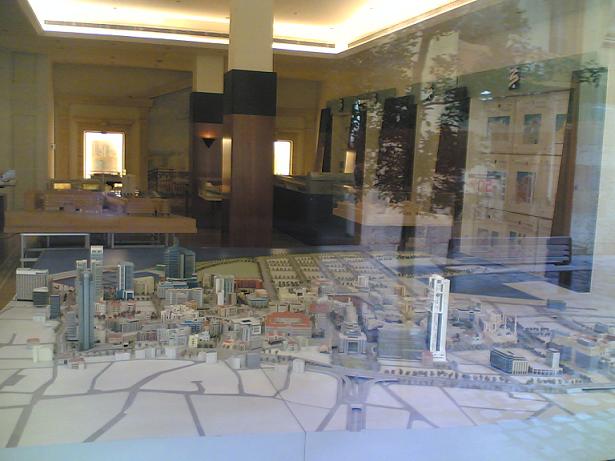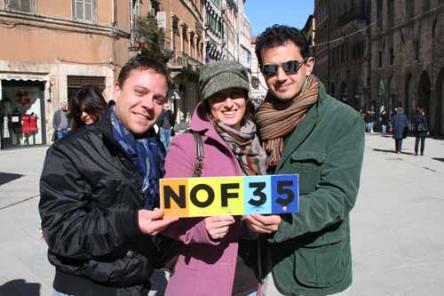Karen AbuZayd alza la voce
La redazione
L’Alto funzionario Onu alla guida dell’Unrwa che i palestinesi sfama, sostiene ed educa da 60 anni. 60 anni, tanto quanto la Dichiarazione dei diritti umani, di cui in questi giorni si parla dappertutto più per amor di anniversari, che per profondo attaccamento.

Non è frequente che un alto funzionario dell'Onu alzi la voce, di questi tempi. Non è frequente, peraltro, che alzi la voce quando si parla di Medio Oriente e di conflitto israelo-palestinese. La voce, ora, l'ha alzata Karen AbuZayd, che a dire il vero negli ultimi tempi ha cercato più volte di far notare al mondo quello che sta succedendo ai palestinesi, visto che è a guida di un'agenzia – l'Unrwa – che i palestinesi sfama, sostiene ed educa da 60 anni. 60 anni, tanto quanto la Dichiarazione dei diritti dell'uomo, di cui in questi giorni si parla dappertutto più per amor di anniversari, che per profondo attaccamento alla questione.
Ecco uno stralcio delle dichiarazioni
di Karen AbuZayd:
"Sixty years on, the gap between the rhetoric and reality, particularly in the case of the Palestinian people, should be a cause for universal soul-searching. […]
Fatality figures for the occupied Palestinian territory must surely make us question our commitment to upholding the right to life, that most fundamental of all rights, protected by a broad range of international legal instruments. More than 500 Palestinians have been killed this year alone, 73 of them children, as a result of the conflict; more than double the figure for 2005. Eleven Israelis have lost their lives this year. The informal ceasefire in Gaza has been welcomed by Israelis and Palestinians alike. For the sake of the sanctity of human life, we hope that it continues substantially to hold in spite of recent violations.
The right to freedom of movement enshrined in Article 13 of the Universal Declaration also remains just a distant hope for many Palestinians. The inhumane blockade of Gaza, which, as many senior UN officials have said, collectively punishes 1.5 million people and over 600 physical obstacles to movement in the West Bank are a sad reminder of the world community's failure to stand by that article.
With an estimated 10,000 Palestinians in Israeli prisons, including some 325 children, the declaration that "everyone has the right to liberty and security of person," and that no one shall be subjected to cruel, inhuman or degrading treatment, has a sad resonance today. Compounding these abuses are statistics that attest to the lack of protection of a broad range of social and economic rights. An unprecedented high number of Gazans–more than half the population–now live below the deep poverty line.
This is a humanitarian crisis, but one that is deliberately imposed by political actors and the choices they have made. It is the result of policies that have been imposed on the Palestinian people. Is it not time to look again at those policies and search for a new approach? Is it not time to question afresh our commitment to the noble tenets of the Universal Declaration?
Overarching all these rights is the right to self determination, the right to a state of which the Palestinians have been deprived through 60 years of exile and dispossession. Rights are best protected within the framework of statehood and we at UNRWA, charged with delivering assistance until the refugee issue is resolved within the context of a final peace agreement, are as aware of this as any humanitarian actor working in the Middle East today.
The chasm between word and deed is a matter of puzzlement to many Palestinians. Locked down in Gaza or waiting at checkpoints in the West Bank, they are at the sharp end of where the lack of protection is most acutely felt. The result has been a cruel isolation from the global community, fed by the inaction of the international system, and leading to a sense of despair and abandonment. In such circumstances, radicalism and extremism easily take root. But this can be reversed and protection is the place to start.
Let us make the protection of Palestinian rights the byword of all our interventions. Let us make the vision of the signatories of the Universal Declaration a reality; continued failure to do so is to our universal shame".
Fonte: www.maannews.net – 11 Dicembre 2008






